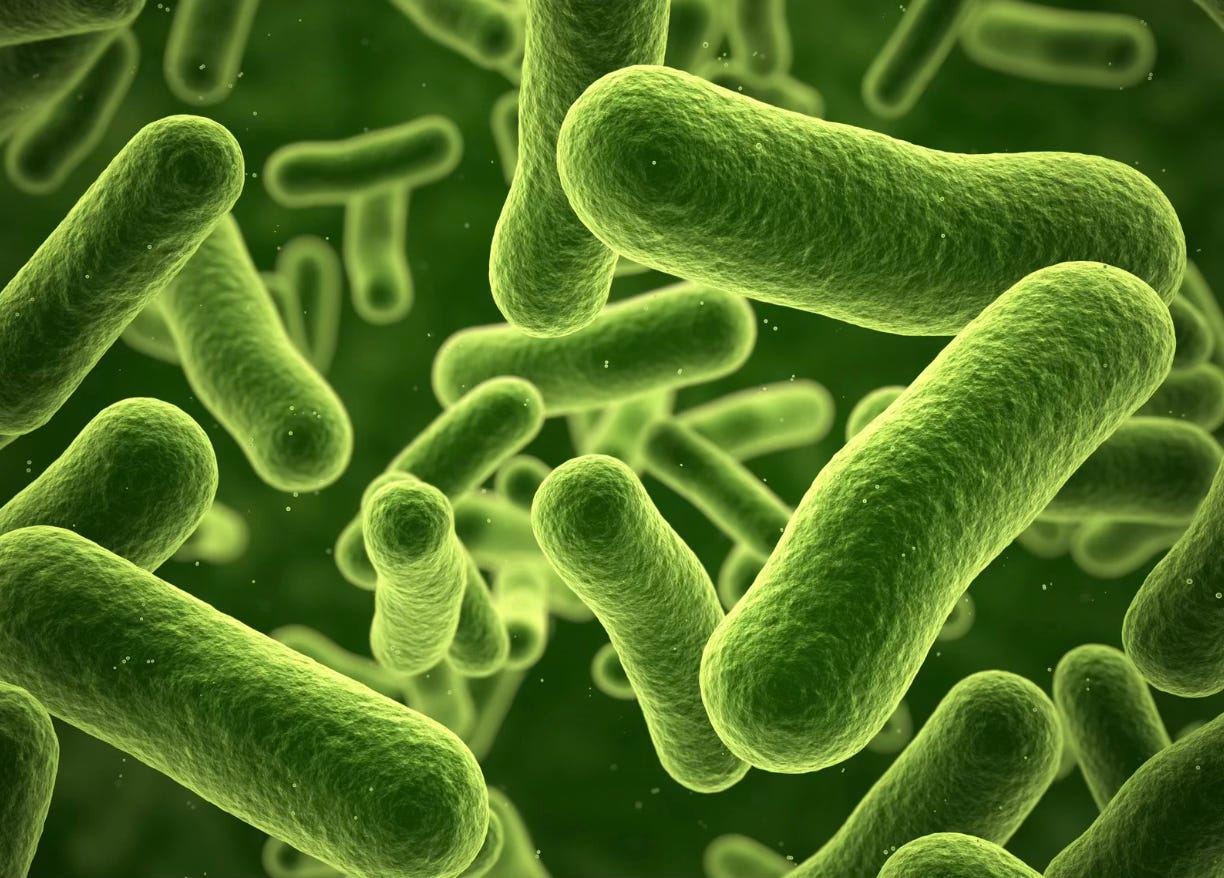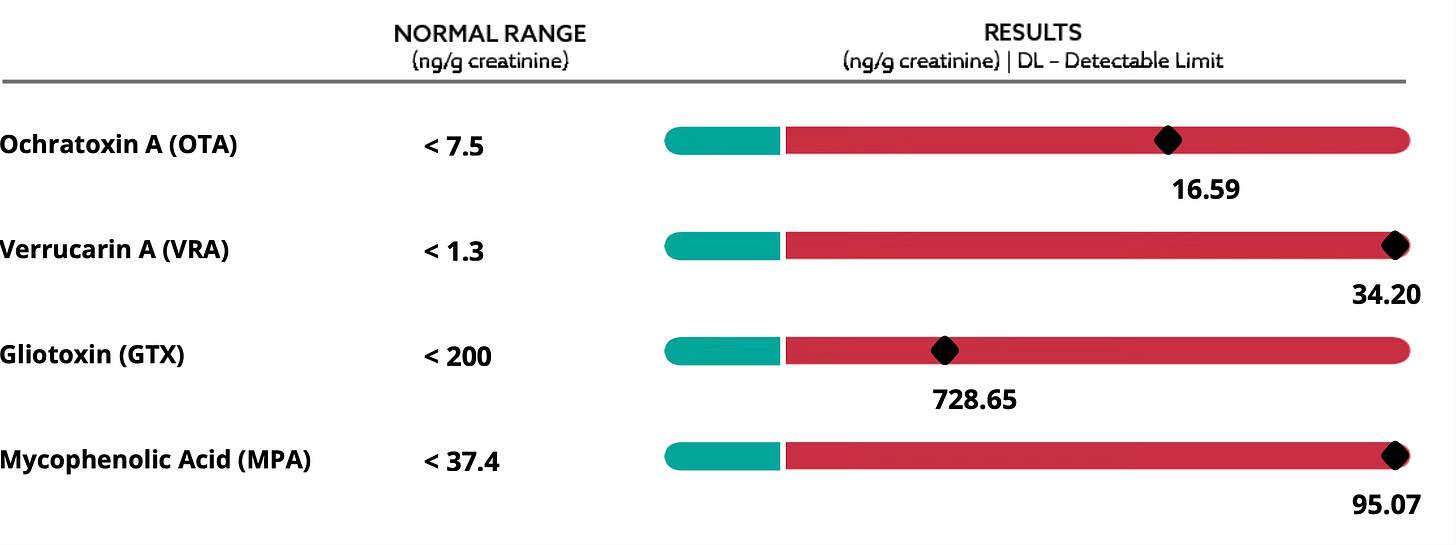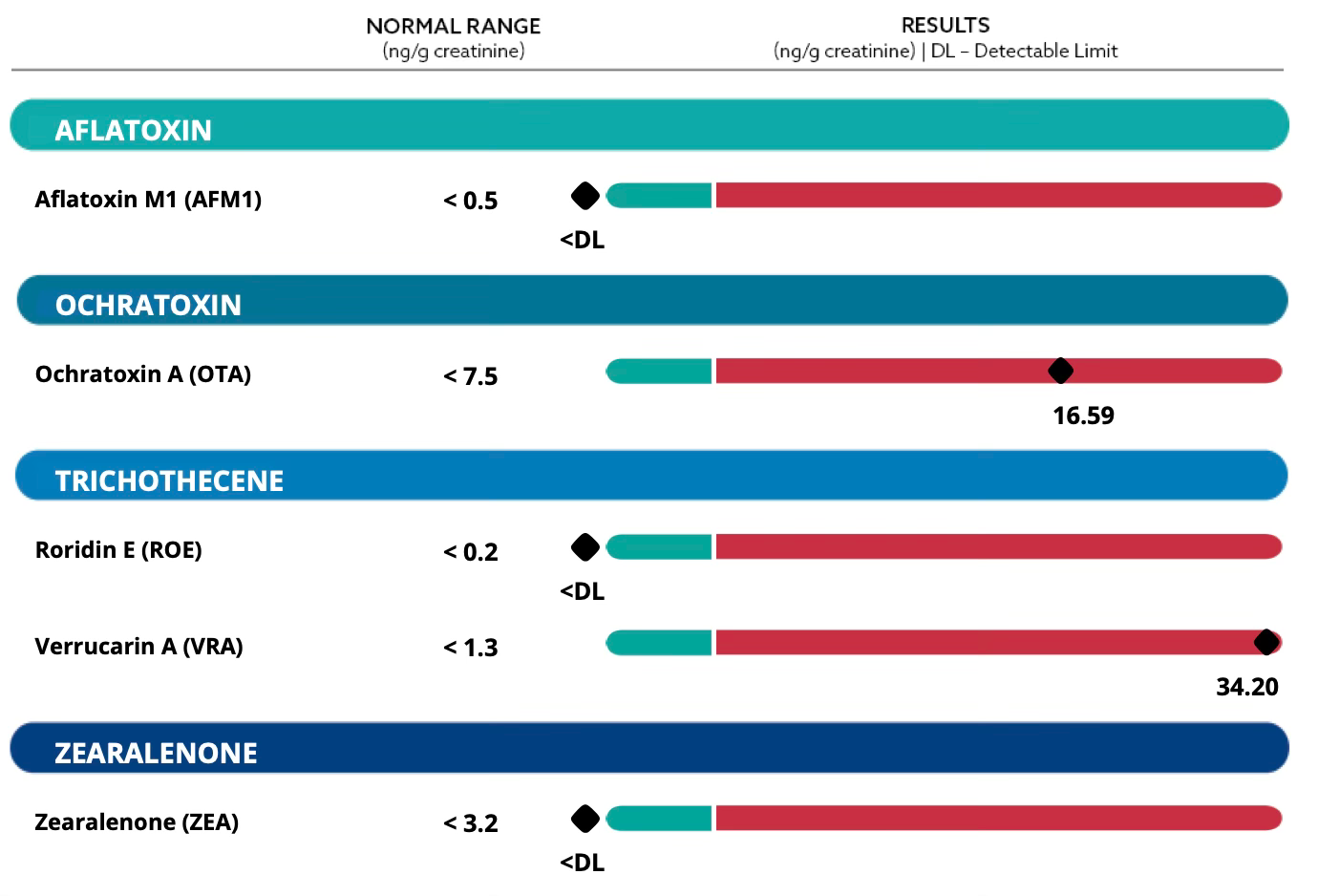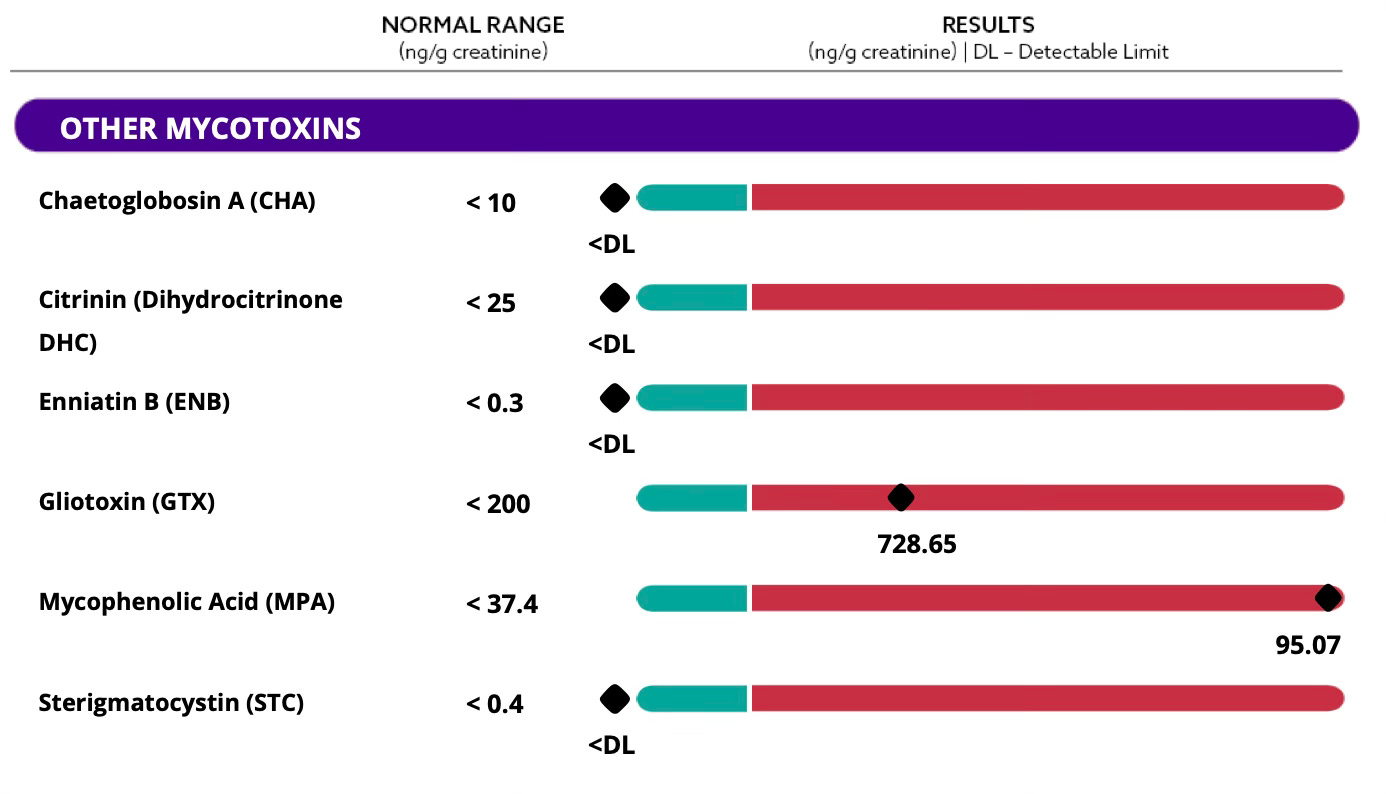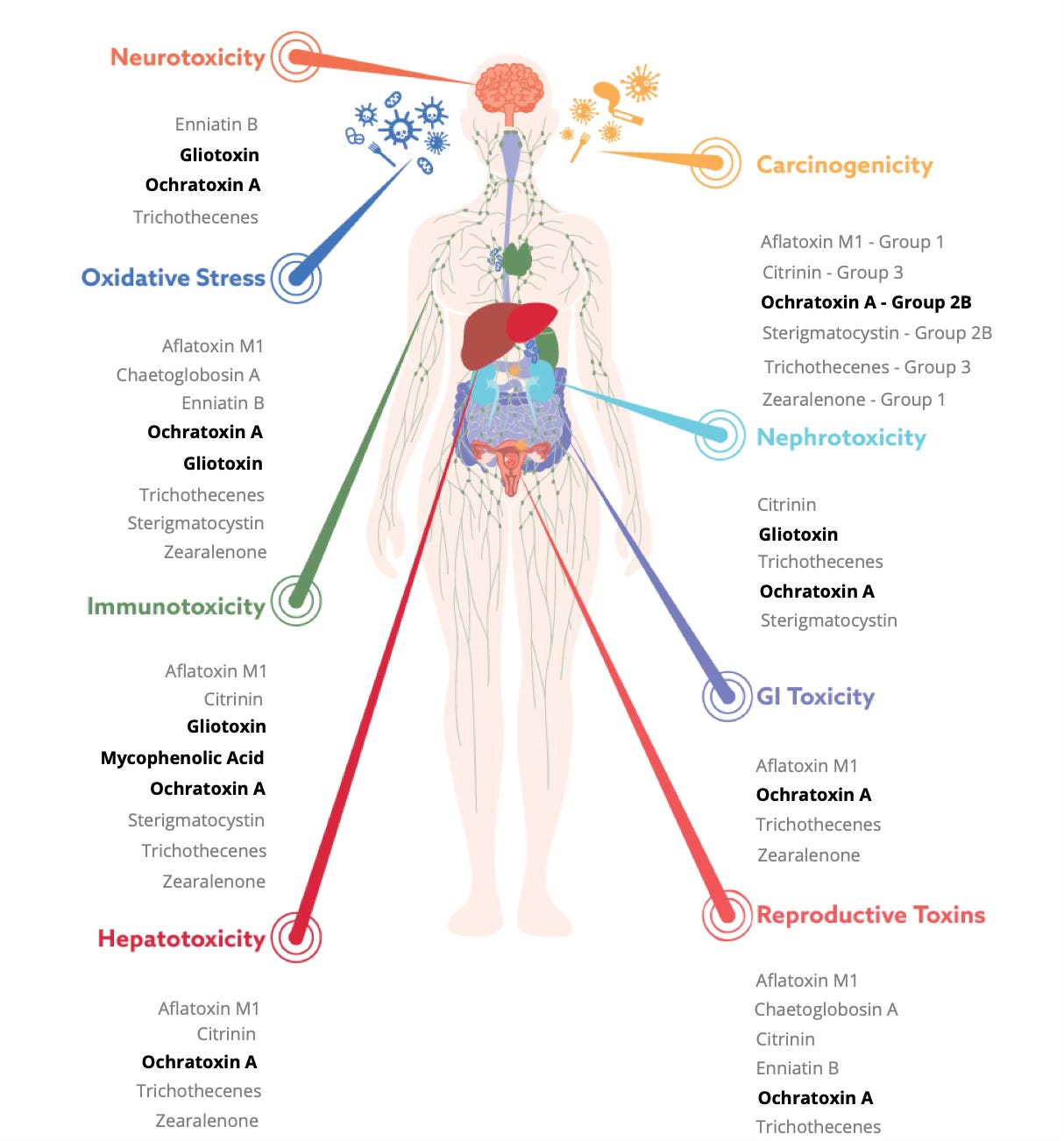Off-the-Charts Mold Toxicity: How I Uncovered My Hidden Mycotoxin Poisoning
The Wake-Up Call That Changed Everything!
As biohackers, we’re constantly optimizing, measuring, and fine-tuning our biology for peak performance and longevity.
But sometimes, even the most sophisticated protocols can’t overcome a silent toxin that’s systematically poisoning your cells from the inside out.
That toxin, in my case, was mycotoxins—and my levels were literally off the charts. In this article, we explore what those mycotoxins are and I share my in-depth aggressive detox protocol.
When “Optimal” Health Metrics Don’t Tell the Full Story
Despite maintaining an aggressive longevity protocol with everything from NAD+ boosters to stem cell therapy, I couldn’t shake certain symptoms that were quietly undermining my biohacking efforts:
Persistent post-nasal drip and sinus congestion that no antihistamine could touch
Subtle cognitive fog that affected my executive function
Inflammatory markers that remained elevated despite anti-inflammatory protocols
Sleep quality issues that seemed disconnected from my Oura data
Gut issues suggesting possible SIBO despite “optimal” microbiome interventions
The breakthrough came when I connected these symptoms to environmental exposure. As someone who travels frequently to remote locations for work and adventure—including multiple stays in water-damaged buildings and older accommodations—I realized I might be dealing with biotoxin exposure.
The Test Results That Shocked Even Me
I ordered the MycoTOX Profile from Mosaic Diagnostics, a comprehensive urine-based assay that measures 11 different mycotoxins. What came back was beyond anything I expected:
The Devastating Numbers:
Verrucarin A: 34.20 ng/g (Reference: <1.3) — 2,531% OVER reference range
Gliotoxin: 728.65 ng/g (Reference: <200) — 264% OVER reference range
Mycophenolic Acid: 95.07 ng/g (Reference: <37.4) — 154% OVER reference range
Ochratoxin A: 16.59 ng/g (Reference: <7.5) — 121% OVER reference range
To put this in perspective: my Verrucarin A levels were 26 times higher than the safe upper limit. This wasn’t just mild exposure—this was systemic biotoxin poisoning.
I am being transparent here, so here are my results:
The Hidden Mycotoxin Sources Sabotaging Our Health
Mycotoxins are toxic compounds produced by mold species that are ubiquitous in our environment¹. The sources that likely contributed to my extreme exposure include:
Environmental Sources:
Water-damaged buildings and moldy wood fires in Nepal lodges (hotels, lodges using post monsoon moldy wood and yak dung for fire, older accommodations during travel)
Poor ventilation systems in aircraft and buildings
Humid climates that promote mold growth in fabrics and materials (when I spend my time in Tahiti 2 to 3 months per year)
The California fires + using incense for meditation
Dietary Sources:
Nuts and grains (Aflatoxin exposure from storage conditions)
Dried fruits and spices from questionable storage (I do my best but when traveling….)
For others, it could be Coffee (Ochratoxin A contamination)², which I don’t drink and/or Wine (Ochratoxin A from grape contamination), which I don’t drink either.
The Nepal Connection:
Multiple extended stays in high-altitude lodges with poor moisture control and ventilation likely created the perfect storm for massive mycotoxin accumulation in my tissues.
The Longevity-Destroying Effects of Mycotoxin Exposure
The research on mycotoxin toxicity reveals why these compounds are so devastating to our healthspan and longevity goals:
Cellular and Mitochondrial Damage³:
Direct mitochondrial toxicity leading to ATP depletion
Glutathione depletion compromising cellular antioxidant defenses
DNA damage and increased mutation rates
Disrupted protein synthesis affecting cellular repair mechanisms
Immune System Suppression⁴:
Mycophenolic Acid specifically suppresses T-cell function (it’s literally used as an immunosuppressive drug!)
Increased susceptibility to infections and cancer
Autoimmune dysregulation and chronic inflammation
Neurological Impact⁵:
Gliotoxin causes direct neurotoxicity and neuroinflammation
Cognitive impairment and memory dysfunction
Increased risk of neurodegenerative diseases
Longevity Pathway Disruption:
mTOR dysregulation affecting autophagy and cellular cleaning
Sirtuins inhibition compromising DNA repair and stress resistance
Telomere shortening accelerating cellular aging
Hormonal disruption affecting growth hormone and sex hormones
My Aggressive 90-Day Detoxification Protocol
Given the severity of my exposure, I developed what I call the “Nepal-Level Emergency Protocol”—a comprehensive approach targeting multiple detox pathways simultaneously:
Keep reading with a 7-day free trial
Subscribe to The Ultimate Guide to Biohacking & Longevity to keep reading this post and get 7 days of free access to the full post archives.


